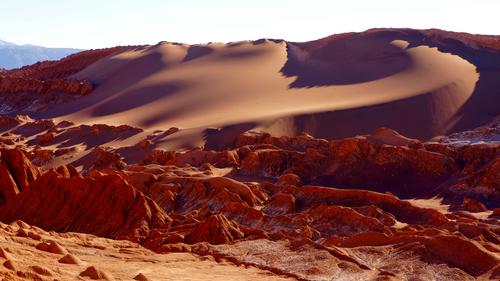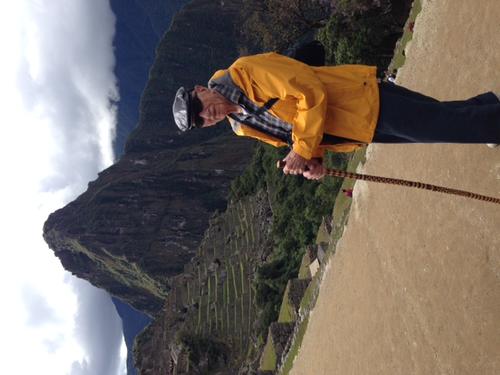Princeton Proust Questionnaire: Donald Fletcher ’39 *51, Princeton's Oldest Alum
The Rev. Donald Fletcher ’39 *51’s travel experiences began at an early age. The son of a medical missionary doctor, the New Jersey native spent most of his formative years living in Korea. Thanks to his parents, Fletcher’s passion for service and travel grew. After graduating from the Princeton and receiving his M.Div. from the Princeton Theological Seminary, Fletcher served the Presbyterian Board of Foreign Missions in Chile and Mexico. In addition to his service work, he’s enjoyed a lifetime of traveling around the world with his family. PAW asked Fletcher, who turned 106 in January and is Princeton’s oldest living alum, about his travel experiences and advice.
When did you leave Korea?
I was 16 when I left. During the course of that time, my family had been on a couple of leaves. I was actually born in New Jersey. My parents were out on leave at that time. My sister and brother were both born in Korea, which (as things were in those days) meant they were British subjects, but only temporarily. They both were able to claim U.S. citizenship.
What was the most memorable trip you’ve taken?
After graduating from high school at 16, as I was leaving Korea to come to Princeton, I was able to join a group traveling the Trans-Siberian Railway. What a memorable summer trip that was. We got on at the Manchuria-Siberian border, and crossed that vast Asian upper continent, 6,000 miles on the train. That’s like getting on in Philadelphia, going to San Francisco and then returning to Philadelphia, round trip.
“Take advantage of whatever opportunities they have and to keep an open mind. Embrace the eagerness to have new experiences and get insights into new cultures.” — Donald Fletcher ’39 *51
Did you get off at any point?
Yes, of course. On the European side. That line ends in Warsaw, Poland, so we go off there. There were four of us young fellows and we stayed together part of the time and then broke up into pairs to get a glimpse of Europe — for as long as our money held out.
What about the worst trip you’ve taken?
I don’t know. We put up with inconveniences and interruptions, but it was all part of the program, so to speak. On the Trans-Siberian trip there was one night when the train suddenly began to bump and rock. It turned out that the rails had spread and the wheels dropped down under the ties. This was in the middle of the night and out in the middle of nowhere. It was a bit frightening, but we were young and we were enjoying it.
What type of vacations do you enjoy most?
Those at the seashore. Especially if I have a small boat to play around with.
Where else have you visited?

My wife and I both volunteered for service abroad, and we were sent to our first location in the north end of Chile in South America. For fans of geography, that is where the Atacama Desert is located, which is the driest spot on the face of this planet [outside of Antarctica’s dry valleys]. It’s a great source of wealth because of the nitrates that are mined [the world’s largest copper mine, the Escondida Mine is located here], which are just right at the surface. It’s a remarkable thing. So that was memorable and that was our first home as a couple. Some of our children were born there. We spent about eight years there in total [in Antofagasta] and established a Presbyterian church although we had a couple of periods of leave. After that my assignment changed, and I was traveling quite a lot in the Caribbean and serving there.
We have six children. Just as the older children were reaching the time they would be following their own pathways, we made a great effort to spend two months in Europe in 1971, all together traveling around as much as we could. Unfortunately, we got hung up in Paris by travel problems, but in all it was a great experience.
What happened in Paris?
We had arranged for an automobile, a small station wagon, to be delivered to us, but there were some unexpected delays. We were hung up in Paris for four weeks waiting for that car. The representative would keep telling us, “Oh yes, it’s on a barge coming down the Seine River.” Eventually it did arrive. That was a bit trying, but then these are the things to be expected when traveling.
Did you continue to travel once you retired?
Yes. My wife and I have enjoyed traveling to various places and we were always glad to move around, see new places, and experience new cultures. So we traveled in both the Americas, Europe, North Africa, and Tibet.
Tell me more about your travels in the U.S.
When I was growing up, we were not a large family, but my sister, brother, and I were all quite close together in age. As a fine family of five, when my dad was on leave from his medical service in Korea, we would return to the United States and travel around by car. This country has such a wonderful system of highways and direction and information. I would urge anyone who has the opportunity to take advantage of traveling by car as much as you can.

Any destinations that are still on your list?
My brother [Archibald Fletcher ’38], who went into medicine and then followed our father into the missionary medical service,
worked in India. I have been to Bombay (Mumbai) and Maharashtra, but would love to travel around to see and learn more about the country and the people.
What travel advice would you offer a recent grad?
I would certainly urge them to take advantage of whatever opportunities they have and to keep an open mind. Embrace the eagerness to have new experiences and get insights into new cultures.
What has traveling taught you?
It taught me that there are fine people to be met and to get to know all around the world in different cultures. Also, the value of trying to learn and understand one another. Above all, it taught me to have an open mind, and that a receptive spirit is invaluable.
Interview conducted and condensed by C.S.












1 Response
Alan Fletcher ’78
9 Months AgoPrinceton Ties — and a Fun Fact
Thanks for this great story on my father! My sister Sylvia is *75 (SPIA) and my brother and sister-in-law, Larry and June Fletcher-Hill, are ’81. My uncle Arch ’38, who is referenced in the story, had three sons attend Princeton: Bob ’71, Don ’73, and Jim ’81. A fun fact my father left out: His parents lived in Princeton for a year in the 1920s, on furlough from their Korea mission, and Dad, at age 9, was present for the opening of the Chapel! He remembers it vividly.